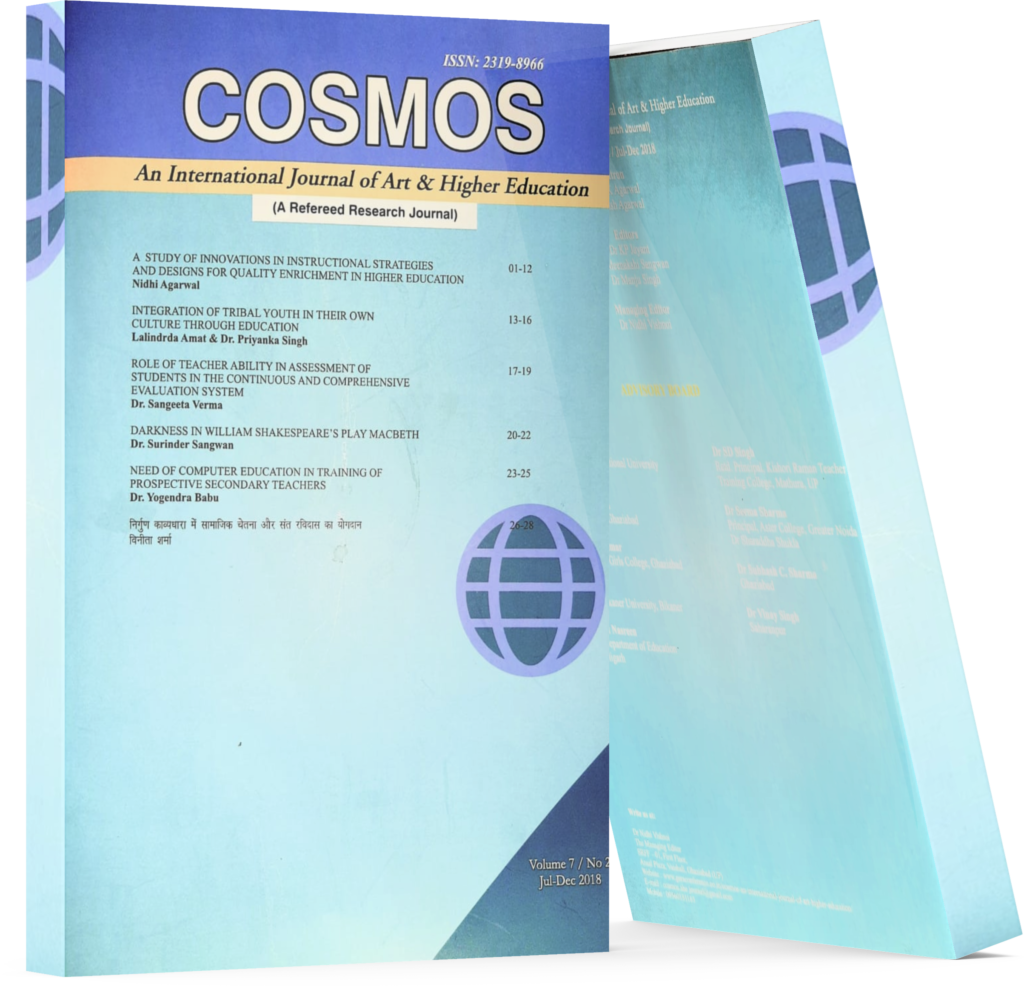A Longitudinal Investigation On The Effect Of Parents Marital Life Satisfaction On Children's Academic Achievement
Keywords:
Marital Satisfaction, Marital Satisfaction, Children, Parents.Abstract
This longitudinal research paper explores the complex relationship between parents’ marital contentment and their children's educational outcomes. One of the most important parts of family dynamics is marital satisfaction, which has been shown to have a strong impact on a number of developmental domains in children, including academic performance. But this relationship is complex and poorly understood, as are the effects of changing marital satisfaction over time and the moderating factors that play a role.
The purpose of this study is to investigate several key questions: What factors influence these changes over time, and how does marital satisfaction change within families? Is there a meaningful relationship between parents' contentment with their marriage and their kids' academic success? Does the effect of marital contentment on academic success change as a child reaches different developmental stages? Exist any moderating factors that interact with the association between academic achievement and marital satisfaction, such as socioeconomic level, family structure, or cultural context?
To address these issues, we collect data from a wide range of families as part of an extensive longitudinal study. We gather data via surveys, interviews, and evaluations of academic performance. This enables us to examine the relationship between marital satisfaction and children's academic success over a longer period of time. We also explore the functions that different moderating factors have in forming this relationship.
The goal of this study is to provide important new understandings into the complex relationship between children's educational outcomes and family dynamics. These revelations could ultimately help families and society as a whole by informing interventions and support programmes meant to foster wholesome marriages and improve children's scholastic opportunities.
Downloads
References
Kouros, C. D., Cummings, E. M. & Davies, P. T. (2010). Early trajectories of interparental conflict and externalizing problems as predictors of social competence in preadolescence.
Fan, X. & Chen, M. (2001). Parental involvement and students' academic achievement: A meta-analysis.
Agarwal, Nidhi, Kumar, Puneet and Mishra, Sugam, (2010). Need to Acquire Democratic Competency by Teacher Educator in Global Scenario. Maa Omwati Journal of Education Research & Development, 1(1), 0976-1365.
Kumar, Sanjeev (2012). Challenges to Pretend Quality Metamorphosis in Current Pedagogy of Teacher Education. Cosmos An International Journal of Art & Higher Education, 1(2), 26-28.
Sinha, Dr Th. Asha (2017). Teacher: An Instrument of Social Change. Globus An International Journal of Management & IT, 8(2), 1-3.
Lal, Hira (2015). Role of Motivation in Teaching Learning. Globus Journal of Progressive Education, 5(2), 1-2.
Kumar, Puneet (2008). A Global Change in Education through Information Technology & Communication. Gyanodaya: The Journal of Progressive Education, 22-26.
Bransford et al., (2010). Collaboration in Teacher Education. American Educational Research Journal, 35(4), 607-651.
Rani, Priyanka and Agarwal, Dr. Nidhi (2015). Thinking Styles: An Overview. Cosmos An International Journal of Art & Higher Education, 4(2), 1-3.
Sugumar, P. B. and Bairwa, Dr. Ishwar Prasad (2015). A Study on the Role of RTI. Cosmos An International Journal of Management, 4(2), 5-6.
Kumari, Anshu (2016). A Study on The Social Construction of Intelligence and Academic Ability. Globus Journal of Progressive Education, 6(1), 1-3.
Ho, S. S., Lwin, M. O., Chen, L. & Chen, M. (2019). Development and validation of parent’s social media meditation scale across child and parent samples. Internet Research, 30(2), 677-694.
Amato, P. R. & Keith, B. (1991). Parental divorce and the well-being of children: A meta-analysis.

